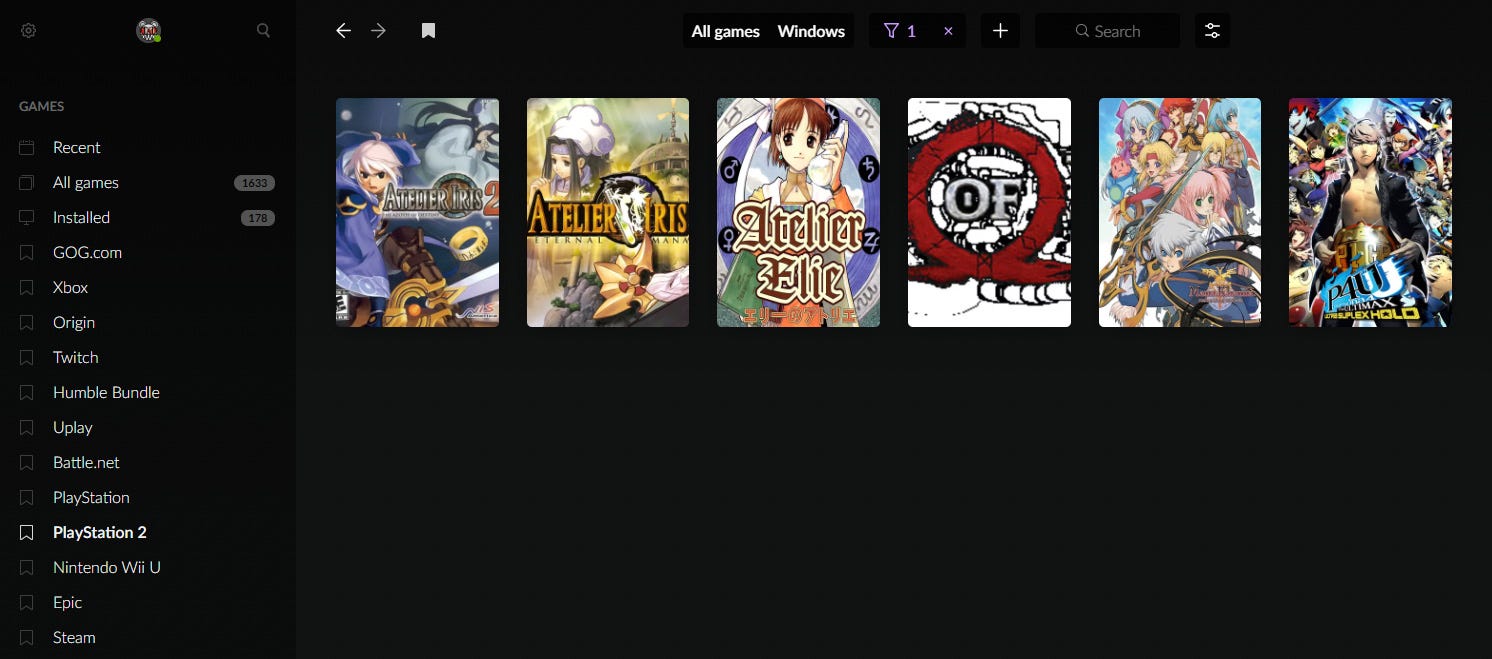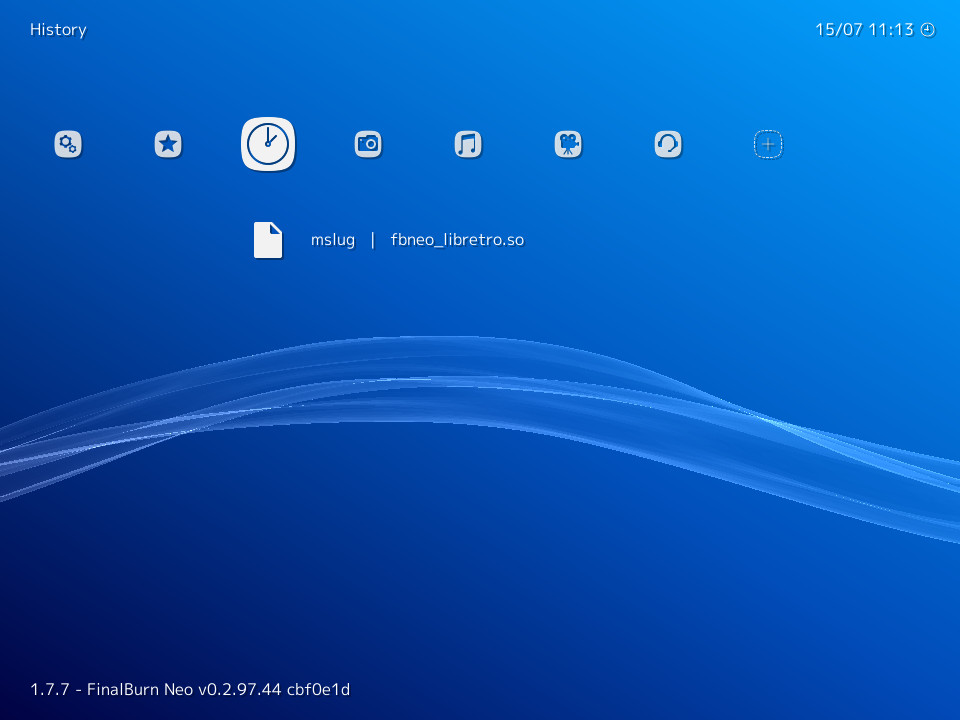- RetroArch.exe -f -L. Cores bsnesbalancedlibretro.dll c: roms SNES rom.zip. Which would load RetroArch instantly in full screen, load the bsnes emulator for Super Nintendo, and then load the ROM ‘rom.zip’. RetroArch is happy to run with ROM’s that are in zip files. Enter a list of your emulators as you set them up.
- Maybe for auto updates, so that you always have the latest version of RetroArch and the latest version of the cores. They also mention in the article that releasing only a few cores at a time will help them focus on reports from users for only a few cores at a time, allowing them to polish those cores without being overwhelmed by bug reports for 60 different cores.
- RetroArch isn’t an emulator in and of itself – think of it as a hub for emulators and media accessible under a single, unified interface. Emulating games on PC usually means a full emulator and different program per platform, but RetroArch can actually emulate quite a large number of systems, all within a single program.
- This time we are going to install #RetroArch to #SteamLink device.You can download the RetroArch with Cores package from the link below;https://buildbot.libr.
RetroArch is an open source and cross platform frontend/framework for emulators, game engines, video games, media players and other applications Visit the Store Page Most popular community and official content for the past week.
Dolphin
Dolphin is a Wii and Gamecube emulator. It has been ported to libretro and an alpha version of the core is available now for Windows and Linux! Version for macOS will be released at a later date.
For more information on Dolphin, visit the author's website here.

See also our in-depth article here.
Citra
Citra is a 'work in progress' Nintendo 3DS emulator.
Core available now for Windows and Linux. Version for macOS will be released at a later date.

For more information on Citra, visit the author's website here.
See also our in-depth article here.
OpenLara
OpenLara is an early Tomb Raider game engine recreation.
Core available now for Windows/Linux.
For more information, read our article on this release here.
It uses the original data files in order to work. What is nice about this one is that it has some very fancy graphics effects that it adds on top of the old game engine without it resulting in any stylistic clashes.
melonDS
melonDS is a 'work in progress' Nintendo DS emulator.
Core available now for Windows, macOS, Linux, Android and iOS.
For more information on melonDS, visit the author's website here.
Retroarch Steam Banner
See also our in-depth article here.
SameBoy
SameBoy is a highly accurate Game Boy/Game Boy Color emulator.
Core available now for Windows, macOS, Linux, Android and iOS.
For more information on SameBoy, visit the author's website here.
PX68K
Retroarch Steam

PX-68K is a Sharp X68000 emulator. This is a Japanese home computer from the late '80s/early '90s that was used by Capcom as devkits for their arcade games. It played host to many popular games from the likes of Namco, Konami and Capcom.
Core available now for Windows, macOS, Linux, Android and iOS.
For more information, read our article on this release here.
RetroArch is coming to Steam as a free download on July 30, marking what appears to be the largest non-commercial emulation launch ever on Valve's digital download storefront. The news came on Friday via an announcement from Libretro, the open source development collective that maintains the RetroArch launcher app for a massive range of operating systems.
In an email interview with Ars Technica, Libretro's Daniel De Matteis claimed that the software's impending launch did not require any conversations with Steam over the storefront's rules about emulation. However, there does appear to be a fuzzy dance going on with this launch, as Friday's announcement includes the following curious claim: 'While there is nothing particularly [sic] about RetroArch or the Libretro API that has anything to do with emulators, most do... use it for this purpose.' We're not sure what other use case is enabled by RetroArch, honestly. Its menu system revolves around finding, downloading, updating, and booting 'cores' that are dedicated to emulating classic video game consoles, and by default, it leads users to cores that advertise compatibility with games from popular consoles made by Nintendo, Sega, Sony, and others.
Valve doesn't appear to have any public-facing rules about whether emulators are allowed on Steam, and poking around Steam reveals a few limited emulator apps. A pair of announcements about rules for Steam's discussion boards, meanwhile, make patently clear that discussions about emulators are expressly forbidden—and are classified as a 'piracy' topic. Valve representatives did not immediately answer our questions about RetroArch.
The version of RetroArch coming to Steam on July 30 will be identical to the one you could otherwise download from RetroArch's official site, though the team is limiting Steam's launch to Windows 'to make sure we can handle the demand' before adding MacOS and Linux options down the line. Thus, whatever you download from Steam won't include any emulators, per se. Instead, the app will direct you to emulator download options with only a few clicks through its default, online-connected interface. Crucially, RetroArch does not include download links within its app to console-specific BIOS files. For most RetroArch emulators, you'll need one of these to boot any software, and if you don't rip a BIOS file directly from your legally owned console, you may enter a legally gray area as a result. (The same goes for whatever games or ROMs you load into said emulators, as well.)
Advertisement De Matteis tells Ars that this Steam version has been in the works 'for a few months now,' and he expresses specific interest in using Steamworks' Web API for future RetroArch builds. If such features are built, he says, that would create a fork in RetroArch's build distribution; until then, what you download from RetroArch's official site will be identical to the builds on Steam. (In a long-story-short explanation, De Matteis says that the Web API may prove necessary for the following red-tape reason: 'There are certain licensing 'how many angels can stand on the head of a pin' issues that pertain to the Steamworks SDK and how the GPL license interprets what constitutes a system library or not.')'We have bandied about the term 'cross-platform game console' a lot, and a lot of people might not really know what that means,' De Matteis says. 'But we hope as we add more and more platforms on which RetroArch can run, people will start realizing what we're going for—and why porting applications to the Libretro API is such a powerful and compelling thing that has nothing but positive benefits for users and developers alike.'This article has been updated to clarify emulator availability on Steam.
